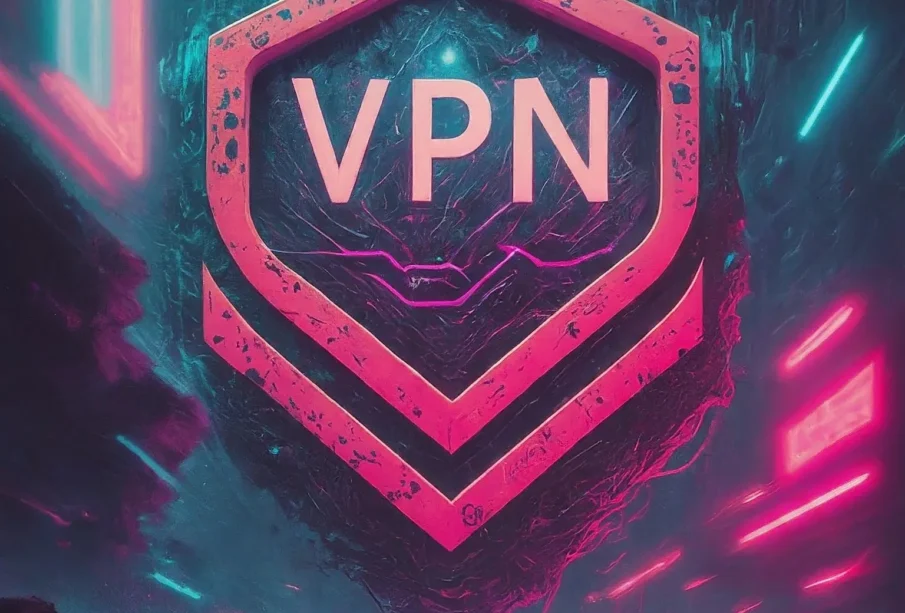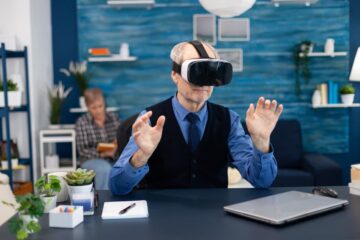Why VPN Secure is Essential in Today’s Cyber World

Among the myriad tools and practices at the disposal of internet users to safeguard their online privacy and security, Virtual Private Networks (VPNs) stand out as a crucial element. In this piece, we will delve into the essence of VPNs, elucidating why their role is indispensable in the modern cyber world.In the expansive and interconnected realm of the digital age, the importance of cybersecurity cannot be overstated.
The Essence of VPNs: A Primer
Imagine a secure, invisible tunnel through which all your online communication travels. This tunnel shields your data from prying eyes, ensuring that what you send and receive online remains private. That’s essentially what a VPN does. It creates a protected network connection when using public networks. By encrypting your data and masking your internet protocol (IP) address, a VPN allows you to surf the web anonymously and securely.
Why VPN Security is Imperative
The cyber world of today is fraught with risks ranging from data breaches and surveillance to identity theft and cyberattacks. In such an environment, VPNs serve as a critical tool for enhancing online security. Here’s why:
- Privacy Protection: In an era where your online activities can be tracked and monitored by various entities – from internet service providers (ISPs) to government agencies and cybercriminals – a VPN provides the anonymity you need. By hiding your IP address, a VPN ensures your online actions are not easily traced back to you, offering a cloak of invisibility.
- Data Security on Public Wi-Fi: Public Wi-Fi networks, found in cafes, airports, and hotels, are notoriously insecure, making them ripe for exploitation by hackers. A VPN encrypts your data, rendering it unreadable to others on the same network. This encryption keeps your sensitive information, such as passwords and banking details, secure from cybercriminals.
- Bypassing Geo-Restrictions and Censorship: Whether it’s accessing region-locked content or circumventing censorship in restrictive regimes, VPNs can be incredibly useful. By connecting to servers in different countries, you can browse the internet as if you were located in those countries, bypassing geo-restrictions and censorship blocks.
- Safe Remote Access: For remote workers, VPNs are essential in ensuring that they can access their company’s network safely from any location. This secure access is crucial for maintaining the confidentiality and integrity of sensitive company data.
- Protection Against Surveillance and Tracking: With a VPN, your online activities become opaque to unwanted surveillance and tracking by advertisers, websites, and ISPs. This not only protects your privacy but also enhances your online experience by minimizing targeted ads and trackers.
Choosing the Right VPN
While the benefits of using a VPN are clear, it’s important to choose the right VPN service. Not all VPNs are created equal, and some can even compromise your security. Here are a few tips for selecting a trustworthy VPN:
- Reputation: Opt for a VPN provider with a strong reputation for privacy and security. Look for reviews and recommendations from reliable sources.
- Security Features: Ensure the VPN offers robust encryption, a no-logs policy, and other security features like a kill switch, which disconnects you from the internet if your VPN connection drops unexpectedly.
- Server Locations: The more server locations a VPN has, the better the chances of finding a fast and reliable connection.
- Ease of Use: The VPN should have user-friendly apps for various devices and operating systems.
In Conclusion
The cyber world is laden with threats that can compromise your privacy and security online. In such a landscape, the role of VPNs as a shield against these threats cannot be understated. By providing a secure and private online experience, VPNs are not just a luxury but a necessity in today’s digital age. As we navigate the complexities of the internet, let us arm ourselves with the right tools to protect our digital lives, and VPNs are undoubtedly at the forefront of this protective arsenal.
Frequently Asked Questions
Why should I use a VPN?
Using a VPN is essential for several reasons: it enhances your online privacy by making you anonymous, secures your data on public Wi-Fi networks, allows you to bypass geo-restrictions and censorship, ensures safe remote access to your company’s network, and protects against surveillance and tracking.
Can a VPN completely protect my online privacy?
While a VPN significantly enhances your online privacy and security, it is not an all-encompassing solution. It’s important to combine it with other security practices, such as using strong, unique passwords and being cautious about the information you share online.
Are all VPNs safe to use?
Not all VPNs are equally safe. Some may log your data or have insufficient security measures in place. It’s crucial to choose a VPN provider with a strong reputation for privacy and security, which includes robust encryption, a strict no-logs policy, and additional features like a kill switch.
Can I use a free VPN service?
While there are reputable free VPN services, they often have limitations such as data caps, fewer server options, and slower speeds. Additionally, some free VPNs may compromise your privacy by collecting and selling your data. If privacy and security are your primary concerns, investing in a reputable paid VPN service is advisable.
How do I choose the right VPN service?
Select a VPN that has a strong reputation, offers robust encryption and security features, maintains a no-logs policy, provides a wide range of server locations, and has user-friendly apps for various devices. Research and reviews from reliable sources can help you make an informed decision.
Will using a VPN slow down my internet connection?
Since a VPN encrypts your data and routes it through a server, it can sometimes lead to a slower internet connection. However, the impact is often minimal with high-quality VPN services that offer fast servers and optimized connections.
Can I access geo-restricted content with a VPN?
Yes, one of the significant benefits of a VPN is the ability to bypass geo-restrictions. By connecting to a server in a different country, you can access content and services that are otherwise unavailable in your region.
Is it legal to use a VPN?
In most countries, using a VPN is perfectly legal, especially for protecting your privacy and security online. However, some countries have restrictions or outright bans on VPN use, so it’s important to be aware of the laws in your country or the country you’re visiting.
How do I set up a VPN?
Setting up a VPN typically involves signing up for a service, downloading their app on your device, and following the installation instructions. Once installed, you can connect to a server of your choice and start browsing securely and privately.
Leave a reply
You must be logged in to post a comment.










